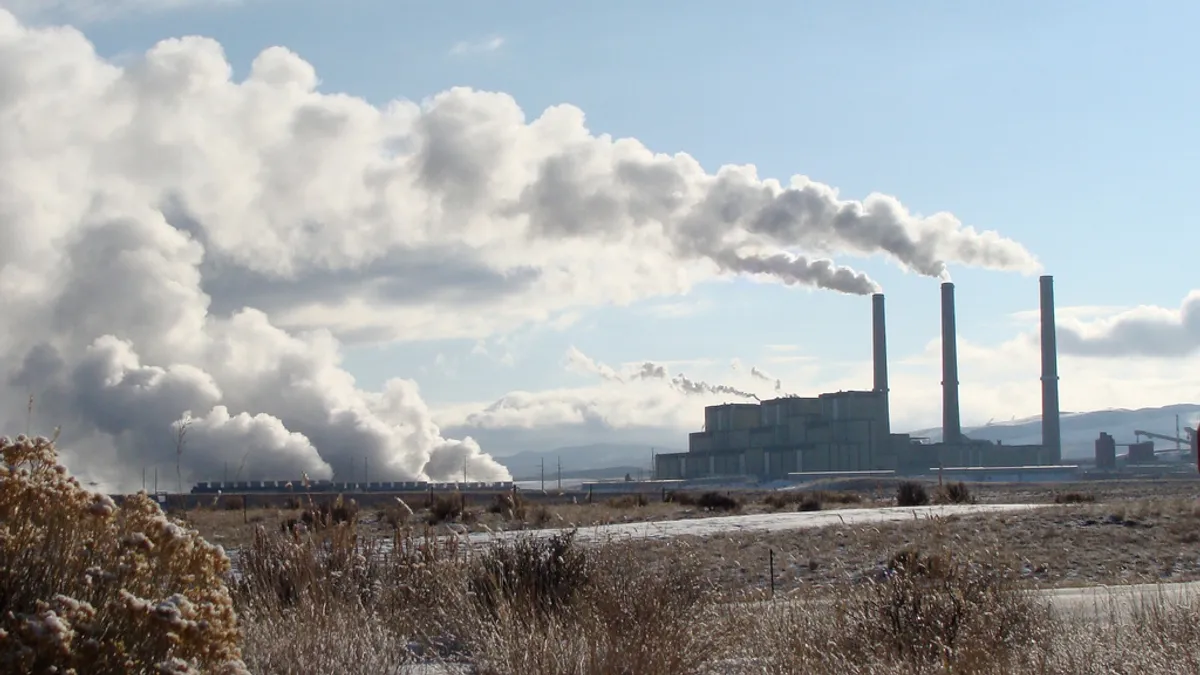Dive Brief:
- The coal industry's challenge to the Mercury and Air Toxics Standards attacks the rule in such a way that winning the case might undermine its case against the Obama Administration's efforts to regulate greenhouse gas, according to new reporting from E&E publishing.
- The Supreme Court will hear a challenge from states and energy companies who say the cost to comply with the MATS rule should have been considered before requiring emissions reductions.
- Murray Energy and several states are also challenging the U.S. Environmental Protection Agency's Clean Power Plan, arguing the EPA lacked the authority to issue the rules and that the emissions targets are extreme and based on a lack of data.
Dive Insight:
The Supreme Court has agreed to hear a challenge to the MATS rule, but an interesting piece at E&E Publishing poses the question: What happens if the coal industry wins?
The EPA issued the MATS rules citing Section 112 of the Clean Air Act, while the Clean Power Plan was promulgated under Section 111(d). But in a brief filed this week with the U.S. Court of Appeals for the District of Columbia Circuit, Murray argued that because the EPA used Section 112 for the MATS rule it can't claim to mandate standards for the same sources under Section 111(d).
"Three years ago, EPA promulgated a national emissions standard under Section 112 of the Clean Air Act .. Under the express terms of the Clean Air Act, this action barred EPA from using Section 111(d) of the Act to mandate state-by-state standards for these same sources," Murray said in its brief.
A win at the Supreme Court would seem to invalidate that argument, as it would imply that the EPA is within the law to regulate power plant emissions. And indeed, attorney Thomas Lorenzen, in private practice at Dorsey & Whitney, told E&E "it would defeat that as a basis for challenge."
The Supreme Court signaled its intention in November to review the MATS challenge. The justices will focus on whether or not the EPA should have considered costs in determining it was appropriate to issue the rule. Many older coal-fired facilities have said the new rules could force them offline next year.














